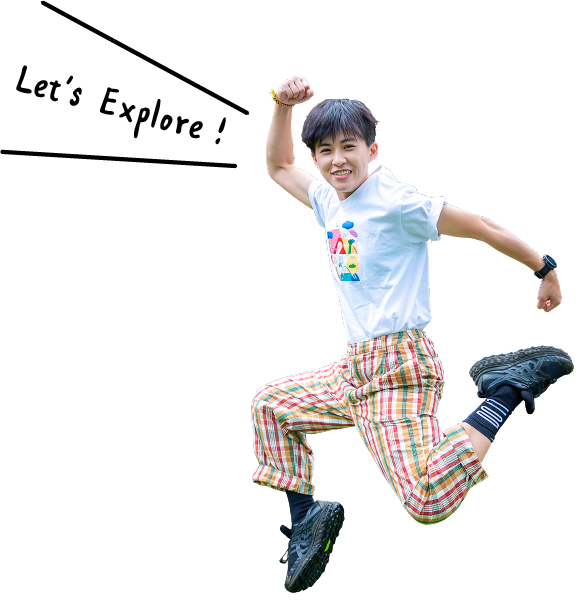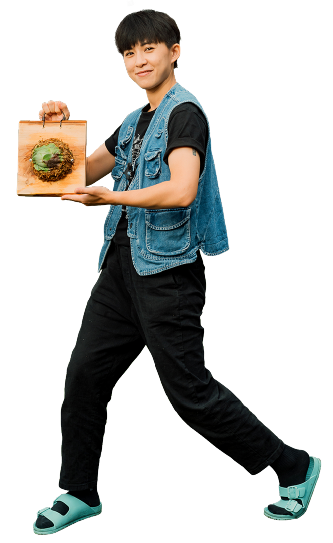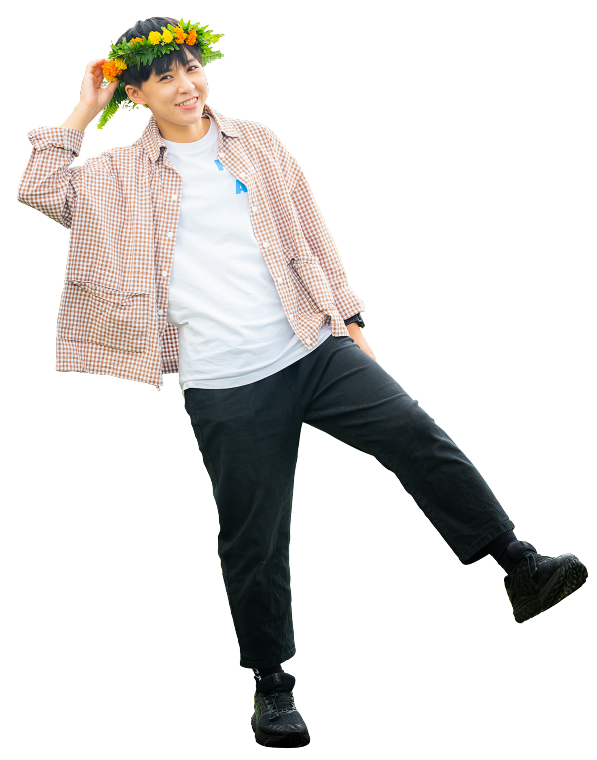Wang, Hui-Chu
Singer-songwriter
Speaks with an unhurried tone but becomes hyperactive when playing video games
Has conquered 22 out of Taiwan’s highest peaks, and the number is still increasing
A crazy lover of dan bing (Taiwanese egg crepe), so much so that she once dreamed of opening a breakfast restaurant

Having been born and bred in the Chia-nan Plain in southern Taiwan, when I was young, I only had a rudimentary knowledge about Taiwanese indigenous peoples, which was mainly based on textbooks and sightseeing experiences to scenic spots like Formosan Aboriginal Culture Village and Sandimen. Later in senior high school, I got to make friends with peers with indigenous backgrounds and therefore foster a deeper understanding as I learned more about them. Perhaps due to the limited exposure to indigenous communities in the city, however, I still had some stereotyped perceptions of these people, thinking of them as “being good at singing and sports,” as well as “having sharply defined features.”
While in university, I was able to meet students from different departments and receive more diverse information. Hence the focus of my understanding of the world gradually shifted from self-exploration to social observation. It was at this stage that I began to pay more attention to respect for different ethnic groups. Over the years, policy changes in response to the Indigenous Movement have enabled more and more peoples on the island to be officially recognized, with the number increasing from the previous nine distinct ones to the current sixteen. However, there are still few channels in daily life for us to obtain information about indigenous communities. Fortunately, as a member of the music industry, I have the chance to befriend and work with many excellent indigenous partners and artists. Though not having had the opportunity to attend traditional indigenous events so far, on a round-island trip in 2017, I paid a short visit to the Pangcah Cilamitay Community in Hualien, where I was treated to a campfire dinner. I have also been to the Vedai Community in Pingtung and had a drink with the host of the B&B. The next day I was invited to attend the service at the local church, where I got to feel the solemn side of the Rukai people. Before leaving, I was met with a Rukai greeting, “Sabau,” meaning “hello, thanks, and great work.”
As a mountaineering enthusiast, I have encountered many indigenous people working in the mountains as mountain collaborators or shuttle drivers who drive around freely in their pickup trucks. Characterized by good humor and a relaxed attitude, they always provide us with the most timely and accurate information about the mountains. This kind of expertise, as I see it, is derived from their familiarity with this land. Recent years have seen widespread discussion on the issues of traditional territories and the opening of mountains, which has sparked varying opinions from all sides in online communities. While the intentions of mountaineering and tourism activities should be good and mutually beneficial, misunderstandings and friction between locals and mountaineers are prone to happen due to unfamiliarity with each other. Although the “hunting” course to which I have been looking forward is canceled due to the traditional gender norm that “men hunt and women weave,” I still hope to learn from the narrative of local residents and the experience of other courses to gain a more comprehensive view of mountains.
Be it in the city or on the mountain trail, I am always attracted to those who speak in their mother tongues, listening up for the magical appeal hidden in the languages that I don’t understand. Perhaps it is because this precious heritage has been preserved despite countless historical and general environmental changes that it has become so beautiful. Having gone through all kinds of turmoil and difficulties, the people of the Payuwan Community have regained their self-identity, courage, and confidence in the process of rebuilding their ancestral homes. Such ethnic traits are what I hope to learn from this trip.




